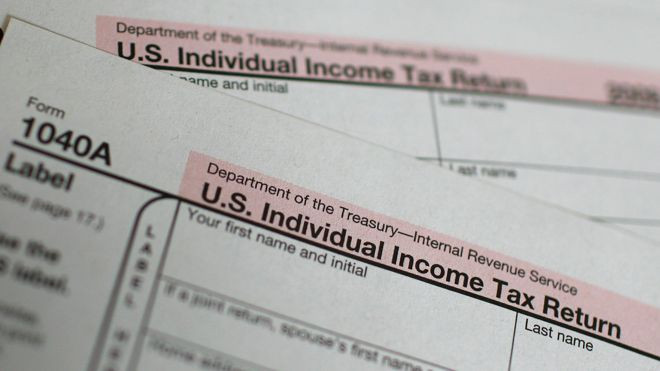How To Dodge IRS Audits With These 4 Tips

There are only four days left before tax season ends this year, and most Americans would like to reduce their chances of being audited by the Internal Revenue Service. And there's good news. There will be fewer audits this year because of congressional budget cuts to the tax agency, meaning there will be 46,000 less audits in 2015 than in 2014. The IRS audited just 0.86 percent of individual tax payers in 2014.
Nearly half of audits occur on taxpayers reporting $1 million or more in income, according to IRS statistics. “The IRS tends to focus on returns where they can get a big bang for their audit buck, which means higher income filers,” said Kay Bell, tax editor at Bankrate.com. However, every once in a while the IRS will dip down into a lower income range because of a few red flags in a tax payer's return, Bell says.
As the April 15 deadline quickly approaches, here are four red flags to keep in mind while filing to reduce your odds of being audited.
1. Double Check Your Return
Verify that all of the information is correct on your return so you don’t pay for silly mistakes later. Right off the bat, make sure that everything is spelled correctly. Also, make sure that you’ve included your correct social security number and that all of you dependents' social security numbers are correct on the return.
Credits and benefits are also at times an issue, says IRS spokeswoman Patricia Svarnas. “You want to make sure that you’re actually eligible for the credits and benefits that you put on your return."
2. Be Honest About Deductions
Be honest about your deductions because they are one of the first screening points for the auditors. This is done automatically with a computer program called Discriminate Information Function System (DIF) that compares average deductions to yours.
If one of your medical, charity or home related deductions, such as property taxes or mortgage interest, are exorbitantly high compared with your income the computer is going to kick it out automatically, and then a person is going to take a closer look, explained Bell.
Another thing to keep in mind is to make sure your deductions are legitimate and that business expenses are actually related to your business. “If you’re a writer at home and you’re including expenses for art supplies, just make sure your deductions are related to your business and that they all make sense for your occupation,” said Svarnas.
3. Don’t Go Crazy On Charitable Deductions
One thing to keep in mind is not to go crazy on this section, as most audits occur because of exaggerated charitable deductions. This applies to people who primarily itemize deductions.
“A lot of times people are just not aware, especially when they give goods, that you’re supposed to declare the fair market value, which essentially is what a willing buyer will pay for the product,” said Bell.
The best way to determine this is to go to your local thrift shop and see what things are selling for, says Bell. But you need to be aware that the IRS knows what that going rate is. “If you start trying to bump those up by trying to get a few extra dollars, that inflated amount is going to give the IRS a reason to pay close attention,” said Bell.
4. Report All Self-Employment Income
Another red flag is self-employment income. Make sure you’re reporting all of your income, especially if you receive 1099 forms, which are used when a taxpayer has received income from other sources besides a regular wage-paying job.
You only issue 1099 forms if your income is $600 or more. However, that doesn’t mean if you made $590 on a job that its tax free, says Bell. That just means the IRS isn’t going to automatically get information about it, and it’s still taxable income.
“The IRS always tends to look a little bit closer at self-employment Schedule C filers because it knows it doesn’t really have a good method for double checking, either income or deductions or expenses that are claimed, said Bell.
You use Schedule C to report profits or losses from a sole proprietorship, or any business you operate and control that is not set up as a legal business entity such as a corporation or partnership.
© Copyright IBTimes 2025. All rights reserved.






















